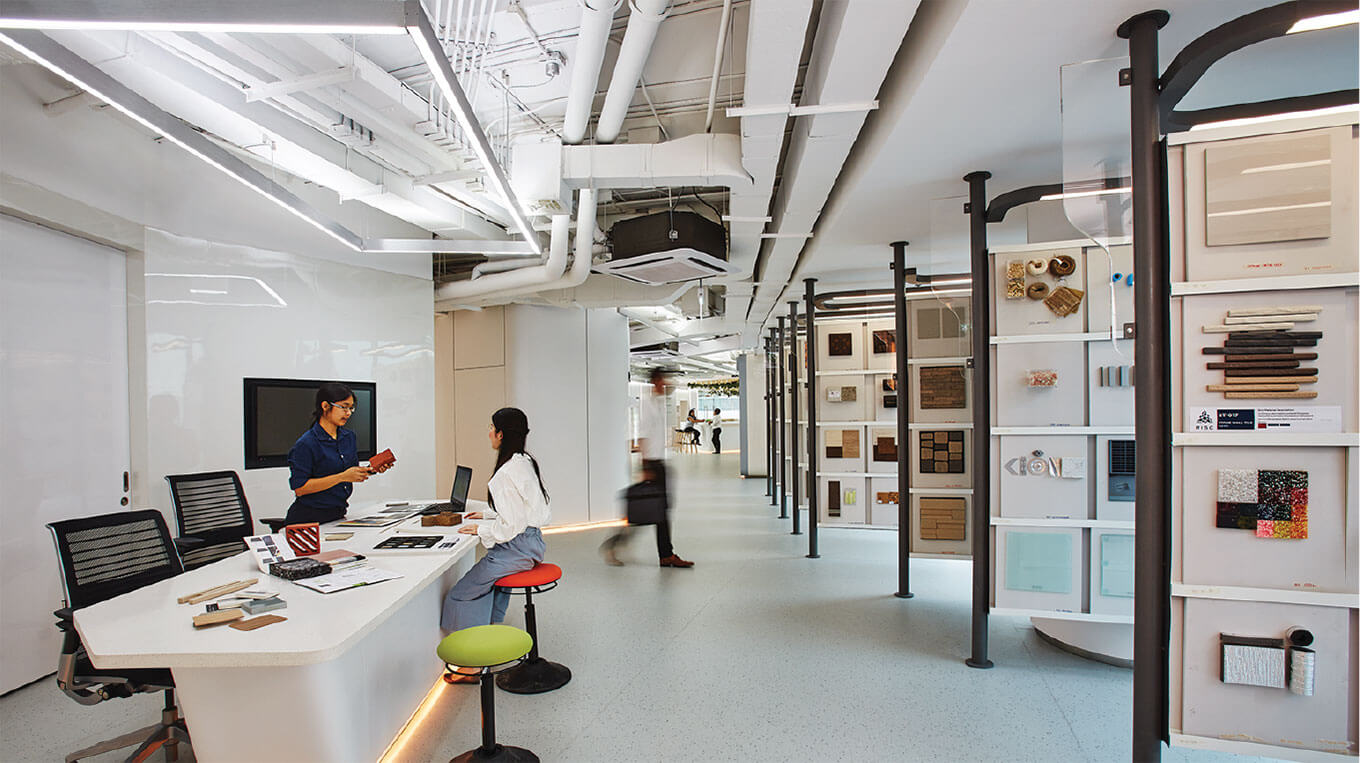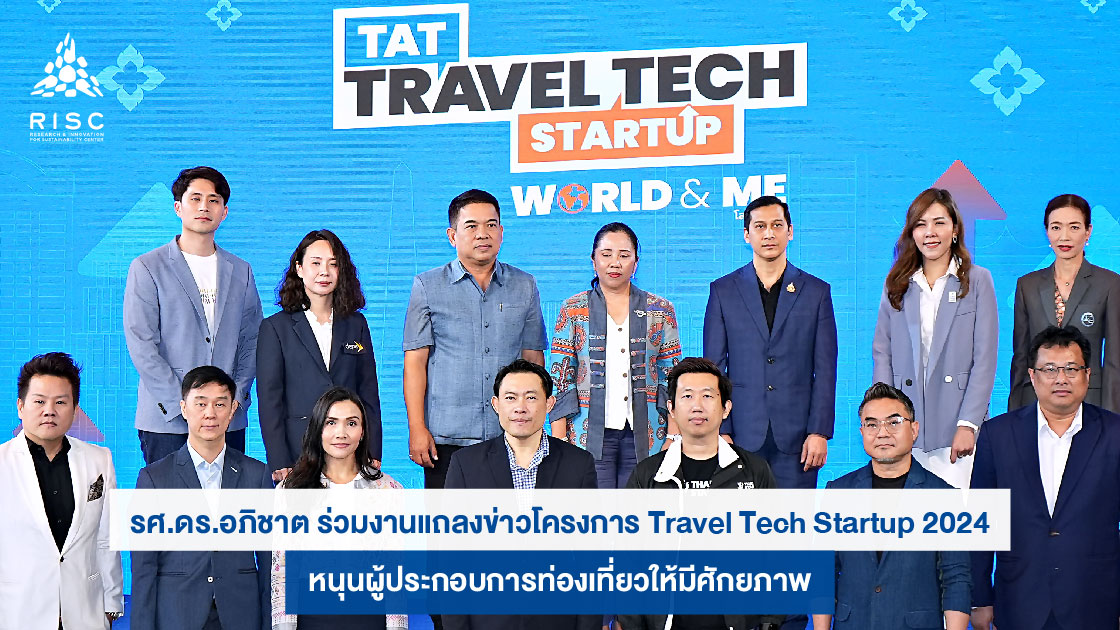
Well-being Material Library
As RISC researchers, we focus on the search for the best materials to implement in construction projects as well as for a better quality of life according to our concept of "for all well-being".
Expanding our Integrated Research Network and building partnerships with public sector eco-designers and manufacturers, the library will exponentially grow and become one of the most extensive eco-material collections available.

Materials Display
This is the first library to collect and display eco-materials for design and architectural applications to support designers. The library also showcases the most updated material trends.

Materials Studio
Material Studio Workshop is a space for preparing new materials for the RISC library. The studio includes a photo studio and material storage space. It is also a space for collaborative workshop activities to exchange ideas and information.

Materials Online
The information on all materials will be collected and digitized for our online database which you can conveniently search for information. In the future, this database will be the most comprehensive material database available.
Find your favorite materials
Knowledge
Sustainnovation: Driving Long-Term Well-Being Through Innovation
Today, the world faces a wide range of interconnected challenges—from environmental crises and public health concerns to social inequality and economic uncertainty. Development focused solely on economic growth is no longer sufficient to address the complexity and scale of these issues.This reality has given rise to the concept of Sustainnovation, which integrates sustainability and innovation to create positive, systematic, and long-term change. Sustainnovation expands the scope of innovation by embedding sustainability at its core—ensuring that innovation generates balanced value for people, society, and the environment simultaneously. Rather than being technology-driven, this approach starts with a deep understanding of real human needs and environmental constraints, and then applies insights from engineering design, technology, and social sciences in an integrated manner.A key driver of sustainable development is the promotion of well-being and the creation of balance between living beings and the environment. Well-being goes far beyond the absence of illness; it encompasses physical and mental health, safety, comfort, and the quality of the surrounding environment for all forms of life. Sustainnovation therefore plays a crucial role in systematically developing innovations that support well-being across multiple scales—from individuals and buildings to entire cities.Examples of Sustainnovation in PracticeResearch and development conducted by RISC illustrate how Sustainnovation can be translated into tangible solutions across different levels of the built environment.Individual Scale: Focused on factors influencing physical and mental health, such as:• Positive Fresh Air Unit for residential spaces, designed to improve indoor air quality by reducing CO₂ accumulation, dust, odors, and external contaminants.• Bathroom humidity and odor reduction system (Humi-dryer), installed at existing towel rack locations to accelerate floor drying, reduce moisture buildup, and lower the risk of mold growth.• Surface and package sterilization technology (Dee Box), developed during the COVID-19 pandemic to enhance safety for delivered items and reduce health risks in modern lifestyles.• Facial Emotion Recognition system, utilizing artificial intelligence (AI) to analyze facial expressions captured by cameras, enabling the assessment and monitoring of emotional states among Thai users to support mental health surveillance.Building Scale: Focused on creating environments that comprehensively support occupant well-being, including:• Ventilation doors, architectural elements designed to enhance natural airflow, reduce humidity and odors, and improve overall indoor comfort.• Upcycled plastic materials, developed using life-cycle thinking and applied to construction components such as road surfaces, walkways, curbs, and interior finishes like carpets.• Intelligent building systems, which go beyond energy efficiency by prioritizing occupant health and comfort through integrated health-monitoring sensors and optimized ventilation systems.Urban Scale: Focused on creating safer and healthier urban environments, such as:• Urban-scale air purification towers (Fahsai), designed to filter fine particulate matter, reduce health risks from air pollution, and create safer outdoor spaces for city residents.• Urban ecological green spaces, developed to restore ecological balance, reduce urban heat accumulation, expand accessible green areas, and directly support both physical and mental health while contributing to long-term urban well-being.Sustainnovation in Real Estate DevelopmentSustainnovation plays a central role in MQDC’s approach to real estate development, reflecting a redefined perspective on the responsibilities of property developers. Rather than viewing themselves merely as resource users or physical builders, developers are repositioned as creators of long-term value and sustainability for cities and society.MQDC has intentionally integrated the Sustainnovation concept into every stage of development—from master planning and architectural design to technology and material selection, as well as long-term operations and management. This holistic approach reflects the belief that real estate development can serve as a powerful mechanism for improving quality of life, restoring urban ecosystems that support both human and environmental well-being, and laying the foundation for balanced, long-term urban growth—rather than generating negative impacts on natural resources or surrounding communities.A Framework for the FutureSustainnovation represents a development framework aligned with the global shift from short-term efficiency toward long-term value creation, with human well-being and environmental balance as its core objectives. Innovations developed under this framework not only address present-day challenges but also establish a strong foundation for society and the planet to thrive sustainably and with quality over the long term. Story by Napol Kieatkongmanee, Senior Sustainable Designer and TREES-A, Building Technology, Intelligent Systems, Innovative Solutions Specialist, RISC
FOR MEMBER
FOR SUPPLIER
Sign up for free membership and gain access to our facility, which includes the Well-being Material Library.

